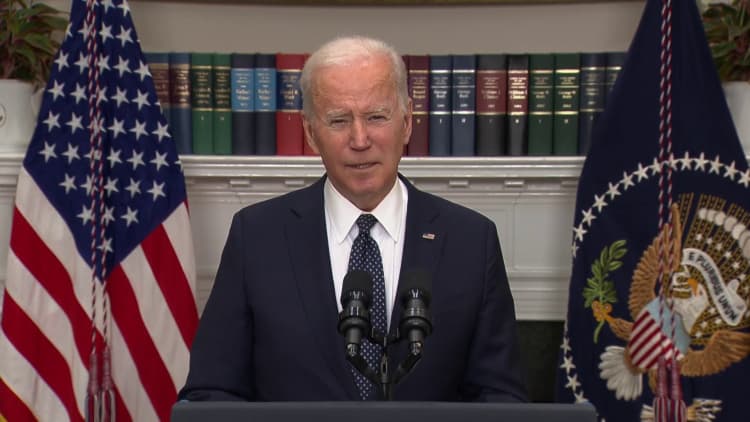
The Ukraine-Russia crisis entered a tense new day Friday, as reports indicated there were new outbreaks of violence and ceasefire violations.
American officials continued to push for a diplomatic solution, while Russian forces prepared to conduct more drills near Ukraine's borders. President Joe Biden, who spoke to NATO and European allies earlier in the day, said he believes Russian leader Vladimir Putin has decided to attack "in the coming days."
The U.S. president left the door open for diplomacy.
For months, Russia has been building up its military presence just outside Ukraine, its former Soviet neighbor. The Kremlin's moves have reminded Western officials of 2014, when Russian forces invaded Crimea in Ukraine.
Biden has warned Putin that Russia could face widespread, devastating economic sanctions if the Kremlin were to move ahead with an attack on Ukraine.
The tensions remained on investors' minds, as stocks traded lower Friday.
Here are some key news items:
Biden believes Putin has decided to invade Ukraine within days
U.S. officials formally attribute cyberattacks on Ukraine to Russian intelligence

